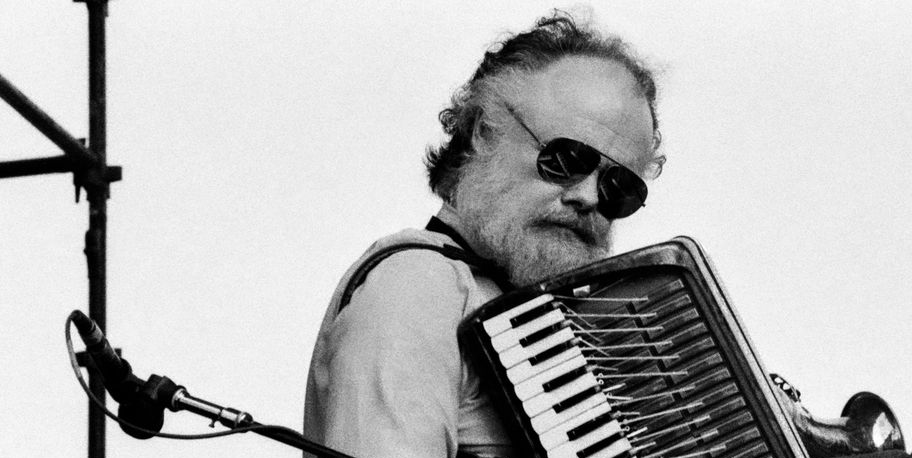Steve Eichner//Getty Images
Garth Hudson, the genius multi-instrumentalist of The Band, passed away Tuesday at the age of 87. He was the last of five band members—four Canadians and an Arkansas drummer—who turned popular music on its ear in 1968 with Music From Big Pink, an album as dedicated as punk music would be a decade later at stripping the glitz and bloat from rock music and finding its way once again to its taproots. The story is now legend of how Hudson, a trained musician, scammed his parents into letting him join a rock and roll band by telling his folks he’d been hired as the music teacher.
He was the wild card in The Band’s rootsy masterpieces, a truly imaginative player on all keyboards, even the ones you wear. (He had a lifetime sweet tooth for the accordion, and was one of the rare players not named Chenier who could look cool playing it.) On The Band’s epic live set—Rock of Ages—he came out and blew a fine saxophone solo in front of some established jazz horn players on a wild version of “W.S. Walcott’s Medicine Show.” He created clavinet stinger that sounded like a jaw harp on “Up On Cripple Creek” that probably was the main reason that the song was one of The Band’s few Top 40 hits. But his true party piece was his long organ prelude to “Chest Fever,” a tour de force that changed almost every time he played it. He was known to throw in ancient hymns, snatches of all sorts of jazz, and almost anything that came to mind. (On the Rock of Ages set, recorded at the Academy of Music in New York on New Year;s Eve, he even tossed “Auld Lang Syne” into the pot.,) Sail on, Honeyboy. The others are waiting for you there.



 There Goes My Last Hope of Seeing Jack Smith’s Classified-Documents…
There Goes My Last Hope of Seeing Jack Smith’s Classified-Documents…